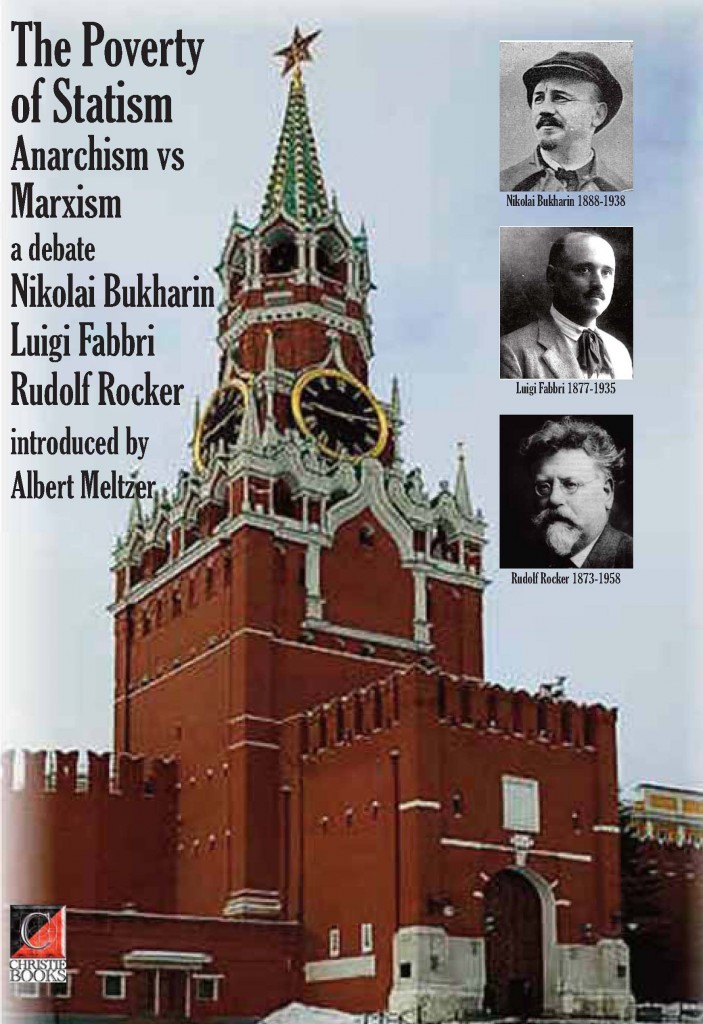 eBook £1.50/€2.00 (see eBookshelf ). Also available from Kindle and Kobo
eBook £1.50/€2.00 (see eBookshelf ). Also available from Kindle and Kobo
“Deported American anarchist Emma Goldman travels to Russia for the first time in 30 years. She provides a revealing picture on the rampant oportunism throughout the Soviet government and its steady roots throughout the bureacracy. In addition she focuses on how the Soviet government began to open its arms after the Civil War to those who once had fought against it: the Mensheviks, Socialist-Revolutionaries, and even the old tsarists. While these forces of the right were now coming into cooperation with the Soviet government, those on the extreme left saw an utter betrayal of revolutionary principles. At the one hand, during the Civil War, the Bolsheviks were much too brutal to the rightists, now they were much too nice. The extreme left then began to adamantly push for the overthrow of the Soviet government. Goldman explains life in Soviet Russia from the viewpoint of the extreme left revolutionaries, and charts the undemocratic injustices that occur to them as a result.
“Goldman was dismayed when she discovered that Doubleday, Page & Company had, without informing her, changed the title of her work from “My Two Years in Russia” to “My Disillusionment in Russia.” Even worse, the publisher cut the last twelve chapters of the manuscript (starting with Chapter 22: Odessa), omitting her account of crucial events such as the Kronstadt rebellion and the afterword in which she reflected on the trajectory of the revolution after the Bolsheviks seized power. At Goldman’s insistence, the omitted chapters were published as a separate volume: My Further Disillusionment in Russia (Garden City, N.Y.: Doubleday, Page & Company, 1924). The complete text in one volume, with an introduction by Rebecca West, appeared the following year: My Disillusionment in Russia (London: C. W. Daniel Company, 1925).”

